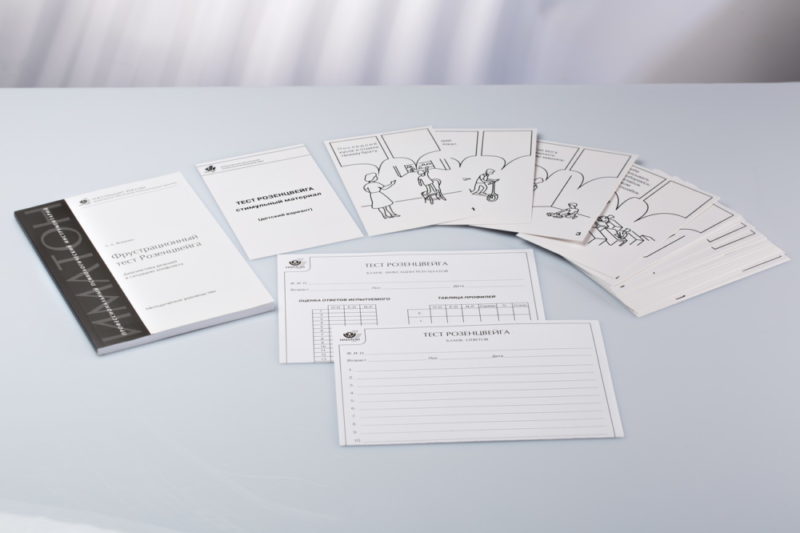Frustration in psychology is an emotional state in which a person, faced with insurmountable external or internal difficulties, receives a serious obstacle to achieving his desired goals. Unmet need causes a set of negative experiences that subsequently lead to disorganization of behavior. In severe cases, this condition provokes inadequate emotional reactions and neurotic disorders.
Material Content:
What is frustration in simple words
The literal translation of the term “frustration” from Latin is “deceived expectations,” and such a formulation characterizes this condition as well as possible. Usually a period of frustration occurs after a person has been in a state of expectation or anticipation of a certain event that is important to him for a long time, but it does not occur under the influence of various factors.
In simple words, this is a state of frustration and depression, as well as a lack of inner satisfaction caused by unfulfilled expectations and unjustified hopes. This situation is much more serious than it might seem at first glance.
Definition of a term in psychology
The definition of frustration in psychology is a negatively colored state of a person that arose as a result of a lack of compliance of desires with real possibilities. At the same time, there are obstacles to achieving the stated goals, which is classified by most psychologists as a traumatic situation.
When a person is in a frustrated state, a series of emotions and experiences arise, such as disappointment, depression, anxiety, and in some cases even despair.
According to psychoanalysts, frustration is of great importance in the formation of the ego (a conscious psychological essence), therefore, methods aimed at artificially evoking emotions of a similar spectrum under the supervision of a doctor are one of the methods for treating neurosis in psychoanalysis. It is widely believed that pathological frustration can be considered only when a certain threshold of development intensity is exceeded, and in a lighter variation, this can be considered a normal factor in personality formation.
Varieties
There are various classifications of frustration, one of which is based on the mechanism by which this condition occurs.
Outward frustration It is caused by certain circumstances that appear from the outside when factors influence the situation that are not subject to change on the part of the person himself. Moreover, the subject can directly or indirectly provoke the occurrence of such a situation or become only a victim of circumstances. Examples of external frustration include financial difficulties, dismissal from work, parting with a loved one, the death of a relative, a serious illness, etc.
Internal frustration provoked due to an unfavorable psychological state of the person. It can be caused by self-doubt, fear or anxiety.
Subsequently, a person enters into a vicious circle, leading to serious consequences, such as depression and neurosis. And also the source of internal frustration can be the inconsistency of goals.
According to the theory of the American psychotherapist S. Rosenzweig, three types of frustration can be distinguished on the basis of various experiences:
- Related to deprivation, when funds are not available to achieve the goal. Example: painful hunger in the absence of the ability to get food.
- Provoked by losses. An example is the death of a loved one.
- Based on the presence of internal or external conflict. Example: love for a married woman.
Mental conditions and chains of reactions in case of deprivation, loss or conflict will be different. Of course, it is necessary to take into account the personal characteristics of each subject: the state may vary depending on them.
In a separate group, the aforementioned controlled frustration can be distinguished. This is a therapeutic condition used in psychoanalysis in which the doctor works with the patient difficult moments to facilitate the formation of protective reactions and identify the causes of neurotic disorders.
Causes and signs of development
A list of the causes of the frustration state that occurs most often can be distinguished:
- Stress. Nervous tension arises due to the complex effect of many annoying factors - both small and quite serious. Over time, when the number of events provoking stress begins to exceed the capabilities of the protective mental mechanisms of the individual, frustration or neurosis occurs.
- Internal problems. An increased level of anxiety, the presence of complexes, self-doubt - all this prevents a person from achieving his goals and slows down his personal development. As a result, this leads to the inevitable state of frustration, when the desire for new experience is hampered by inner experiences.
- Irresistible difficulties. Unlike the many small stressful factors surrounding us, there is always a risk of facing serious force majeure circumstances: illness, dependence, restriction of freedom, natural disasters, etc. Such causes cause the development of a state of frustration very quickly.
In general, all causes can be divided into three main groups: biological (related to the state of the individual's body), psychological (any internal conflicts, anxieties, etc.) and sociocultural (prohibitions, moral standards, taboos, which contradict personal beliefs )
For each person, the psyche reaction is based on individual characteristics, it is difficult to derive a single response template to negative reactions from the outside.
However, the main signs indicating a frustrated state of a person can be identified as follows:
- a sense of hopelessness, despair, inability to independently solve the problem;
- increased level of anxiety, anxiety about minor factors that are not related to the main issue;
- irritability, anger and aggression, often directed at oneself or others;
- manifestation of unconstructive behavior (withdrawal, isolation, the emergence of addictions or self-destruction).
If frustration has not yet reached the level where a pronounced negative effect on the psyche is exerted, then the symptoms can be smoothed, implicit, expressed in general depression and mild irritability, which can be easily managed, at least for a while. However, if the above symptoms become noticeable to others and introduce a clear imbalance in the normal existence of a person, then you should pay attention to this and, if possible, seek help from a specialist (clinical psychologist or psychotherapist).
It is important to distinguish frustration from more severe conditions such as depression. In the event of a frustrated state, a person does not lose the ability to exert volitional efforts to solve the problem, the desire to achieve the goal is not broken. But the onset of apathy and a loss of interest in life is already considered a formidable symptom requiring closer attention.
Diagnostic Methods
The main diagnostic methods used to determine the level of frustration include the Rosenzweig test (the method of picture frustration, translated and adapted by N.V. Tarabrina), rapid testing by V. Boyko and its revised and expanded version - the method of L.I. Wasserman.
The picturesque test of authorship by S. Rosenzweig is a set of cards with various situations depicted on them. Usually they are attended by several characters, one of which pronounces a certain remark. The patient is required to give the first answer that comes to mind for a given phrase.
Cards are divided into several groups, and the answers are interpreted by a psychologist after a complete test. It is possible to independently analyze such a test, however, in this case, the result may be distorted.
The Boyko questionnaire is a short rapid test for identifying the state of frustration, consisting of 12 questions, for each positive answer 1 point is given. Depending on the total number of points, the result is interpreted.
There is an extended modification of this test developed by L.I. Wasserman, which is more varied and has a higher reliability of the result.
In addition to testing methods, the psychologist collects an anamnesis, analyzes the general condition of the client, and, if necessary, talks with relatives to form a complete picture.
Manifestation in childhood
The normal level of frustration can be considered a very significant factor in the formation of the character and moral principles of the child. Until a certain age, the lack of the ability to get what you want in full is an important element of the educational process. Due to this, the child learns patience, respect for the authority of parents and eventually becomes able to independently set priorities.
It is imperative that parents correctly regulate restrictions - excessive rigor is unacceptable and leads to early neurosis, the appearance of aggression or isolation. In the presence of permissiveness, the formation of the boundaries of one's own “I” does not occur.
The first encounter with a state of frustration usually occurs in primary school age, when the child faces the first serious tasks associated with learning. Very often, learning expectations have little to do with reality. Therefore, it is extremely important to teach a schoolchild to cope with frustration states from early childhood.
Parents should be calm, not to escalate the situation, instill confidence in their own abilities in the child. Taunts, scandals and panic are simply unacceptable.
You must regularly give your child the opportunity to participate in solving complex problems and do it yourself. It is important to lead the process, but in no case do it all yourself: the child must make a decision himself, see his result and draw the necessary conclusions.
The manifestation of a severe form of frustration in children is expressed in isolation, outbreaks of aggression, destructive behavior. Such children usually try to draw attention to themselves and their problems, very often this happens in the form of shoots from home, fights with peers, demonstrative gestures and poor study. It is necessary to gently find out the cause of this condition, on your own or by contacting a psychologist.
Personality Behavior in Society
Sol Rosenzweig in his theory of frustration distinguishes three main forms of behavior:
- Extrapunitive the form is characterized by a tendency to blame others for their own failures, external circumstances, a desire to shift responsibility. Typically, this behavior pattern is characterized by excessive aggression, anger and a refusal to analyze one’s own behavior.
- At intrapunitive form aggression is usually aimed at oneself, hypertrophied guilt is present, the level of anxiety is increased, a tendency to excessive introspection arises. In the end, a person becomes self-contained and may stop trying to solve a problem.
- Impunitive the form is distinguished by the absence of any charge, and the upcoming troubles are perceived as inevitable.
And also there are several basic patterns of behavior in a state of frustration. This may be aggression, accompanied by excessive motor activity, avoiding anxious experiences with the transfer of activity to another sphere, isolation and attempts to isolate oneself from the environment. How a person will behave can be predicted taking into account his individual characteristics of character and personal qualities.
Frustration Examples
Here are some examples of frustration that will help illustrate this condition more clearly.
The patient N, who is in a state close to neurotic, is contacting the therapist. He reports that he is a very religious person, brought up in strict moral principles. Recently, he was interested in one woman with whom a warm relationship began, later N found out that she was married. This situation caused an internal conflict of moral principles, which led to frustration.
One of the classic examples: a girl from the countryside from the first grade studies well and stands out against classmates, after leaving school decides to go to the capital's university. After admission, it turns out that in the new environment everyone has a similar level of intelligence and knowledge, after which there is frustration at the inability to achieve the same excellent level of study and positioning oneself in the team as it was before.
There are many such examples; combining them will cause the subject to become a serious obstacle in solving a significant problem.Frustration does not always require the intervention of a psychologist, however, attention to the condition, one's own or those close to one will be required.



















